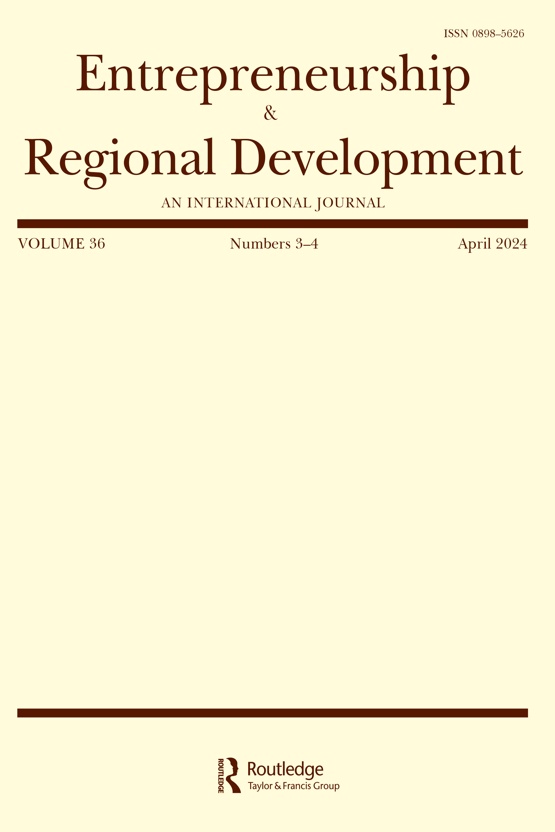被困在有限空间里的赤脚企业家:纽约无家可归的年轻人的例子
IF 3.6
1区 经济学
Q2 BUSINESS
引用次数: 1
摘要
赤脚创业文献很少承认空间在非正式经济活动发展中的作用。然而,阈限空间的概念,被定义为一个过渡的地方,在地理学中被广泛讨论,可以提供一个新的概念镜头,通过它可以观察赤脚企业家的轨迹。这项跨学科研究利用这一视角提出了以下问题:赤脚企业家如何体验参与非正式经济活动的有限空间?为了回答这个问题,这篇文章探讨了纽约10个无家可归的年轻人是如何乞讨、偷窃、交易和卖淫来生存的。通过四年的人种学研究和地理方法的使用,我们解释了这些赤脚企业家是如何体验有限空间的。更准确地说,我们强调这些空间是如何成为矛盾的地方:一方面,它们支持赤脚创业的发展;但另一方面,它们会导致“企业家陷阱”,因为这些活动往往会增加企业家的边际性。基于这些结果,我们对赤脚创业的文献做出了贡献,并更好地理解了创业动态中阈限空间的含义。本文章由计算机程序翻译,如有差异,请以英文原文为准。
Barefoot entrepreneurs trapped in liminal spaces: the case of homeless youths in New York City
ABSTRACT The barefoot entrepreneurship literature rarely acknowledges the role of space in the development of informal economic activities. However, the concept of liminal space, defined as a place of transition and largely discussed in geography, can provide a new conceptual lens through which the trajectories of barefoot entrepreneurs can be viewed. This interdisciplinary research leverages this perspective to raise the following question: How do barefoot entrepreneurs experience liminal spaces to engage in informal economic activities? To answer this question, this article explores how 10 homeless youths in New York City panhandle, steal, deal and prostitute themselves to survive. Drawing on a four-year ethnography and the use of geographic methods, we explain how these barefoot entrepreneurs experience liminal spaces. More precisely, we underline how these spaces are ambivalent places of becoming: on the one hand, they support the development of barefoot entrepreneurship; but on the other hand, they lead to ‘entrepreneurial traps’ in the sense that these activities tend to increase the entrepreneurs’ marginality. Based on these results, we contribute to the literature on barefoot entrepreneurship, and to a better understanding of the implication of liminal spaces in entrepreneurial dynamics.
求助全文
通过发布文献求助,成功后即可免费获取论文全文。
去求助
来源期刊
CiteScore
7.90
自引率
10.70%
发文量
52
期刊介绍:
Entrepreneurship and Regional Development is unique in that it addresses the central factors in economic development - entrepreneurial vitality and innovation - as local and regional phenomena. It provides a multi-disciplinary forum for researchers and practitioners in the field of entrepreneurship and small firm development and for those studying and developing the local and regional context in which entrepreneurs emerge, innovate and establish the new economic activities which drive economic growth and create new economic wealth and employment. The Journal focuses on the diverse and complex characteristics of local and regional economies which lead to entrepreneurial vitality and endow the large and small firms within them with international competitiveness.

 求助内容:
求助内容: 应助结果提醒方式:
应助结果提醒方式:


